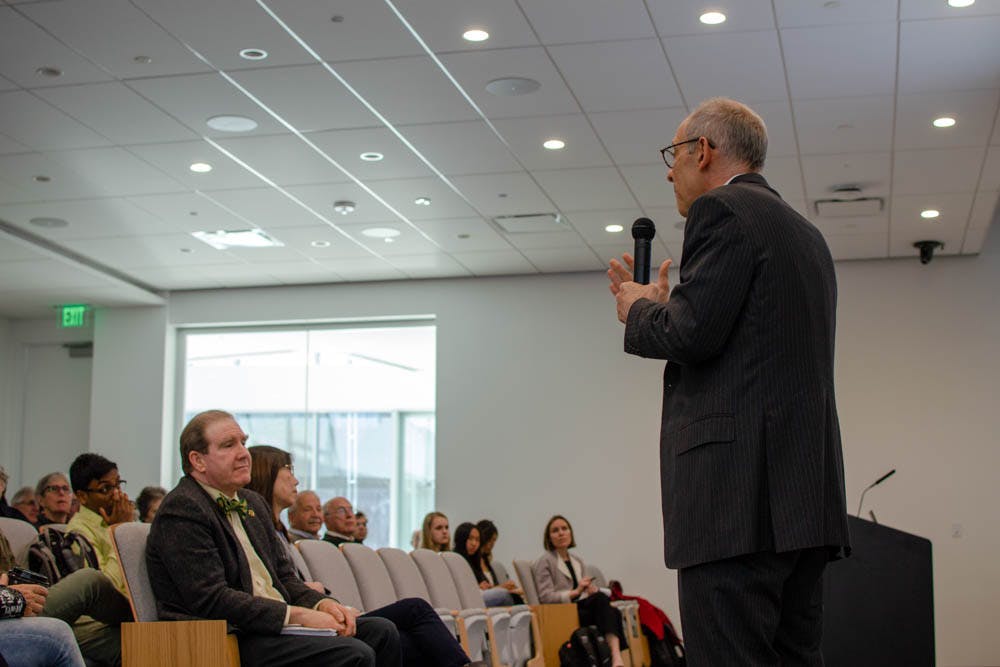As the 2020 election field is already fueled by conversations around healthcare, Ezekiel Emanuel, noted oncologist and chair of the Department of Medical Ethics and Health Policy at the University of Pennsylvania, navigated the intricacies and complexities of the controversial “Medicare for all” proposal as a part of the Watson Institute’s “Politics in Action” lectures series Thursday.
Emanuel, who discussed the pros and cons of the issue at the lecture “Medicare for All: Policy, Politics, and Practicalities,” began by asking the audience, “Do you support Medicare for all?” About half the room raised their hands, and Emanuel began to question those who did and those who didn’t on the reasoning behind their decisions.
Medicare for all aims to provide universal healthcare and effectively eliminates the need for private health insurance. Advocates argue that it would provide coverage for those who are currently unable to afford health insurance, while some critics say that the plan would be too costly.
Emanuel said that actually, under the current national healthcare plan, the “sum total” of spending is going to be “roundabout 60 trillion dollars over 10 years.” In contrast, the Medicare for all plan will cost two trillion dollars less over a ten-year period, Emanuel said.
But Emanuel also argued that just because Medicare for all may be cheaper doesn’t mean that the plan is likely to succeed politically. The health insurance industry raises $1.1 trillion of revenue each year, according to Emanuel. “When was the last time we put an industry with $1.1 trillion of revenue out of business? Never,” he said.
The difficulty of introducing legislation not supported by the health care industry was exemplified in President Bill Clinton’s failed 1993 health care campaign, Emanuel said, which was aggressively opposed by insurance companies. The Health Insurance Association of America, a health insurance lobby group, funded a set of critical and powerful ads called “Harry and Louise” during the ClintonCare campaign.
Health insurance companies would “have nothing to lose” in their efforts to oppose Medicare for all, Emanuel said, adding that they would have no limits to how much money they would spend on lobbying efforts against it. “I don’t think that Medicare for all, in the Bernie version, is realistic in the political standpoint.”
Attendees of the event hoped to gain a better understanding about the intricate policy plan, as it has been a common subject for discussion in the upcoming 2020 election. Erika Bussmann ’22, who attended the event, said that Emanuel’s arguments have been discussed in her PHP 0310: “Healthcare in the US” class. “Obviously, this is a really relevant policy, and I want to know more about it,” she said.
Robert Kemp, another attendee of the event, echoed Bussmann’s comment. “It’s an important and complicated issue, so any chance we have to hear from someone who’s knowledgeable about the issues involved adds to our store of knowledge,” he said.





